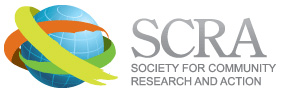Submitted by: Kate Zinsser & Callie Silver
Highlights
Providers need more resources to comply with expulsion legislation.
────
The resources needed include infant/early childhood mental health consultation.
────
Mandates without resources leave kids’ needs unmet and providers frustrated.
Starting even before kindergarten, whether a child demonstrating challenging behaviors gets help or expelled from school is biased due to their gender and/or race. In response to this social justice issue, the U.S. State of Illinois forbid expelling infants, toddlers, and preschoolers from their early childhood programs in 2017. To study the implementation of this law, we organized a coalition of early childhood community stakeholders (e.g. policymakers, advocates, practitioners, researchers).
“As Illinois continues to be at the vanguard of early childhood expulsion policy, this mixed-methods, collaborative study aimed to capture the voice of providers to better understand their experiences with and challenges in complying with new legislation.”
Results from this research-practice-policy coalition illustrate the complexity of addressing exclusionary discipline in early childhood. Findings have already helped policymakers understand the variations across our state in terms of administrators’ knowledge, compliance, and resources. Our findings continue to be leveraged state- and nationwide to inform this important discussion.
How Did A Community Psychology Perspective Inform Your Work?
Our Community Psychology perspective guided every aspect of this research project. As a research team, we derived our questions in response to the expressed needs and concerns of the early childhood community. We convened a coalition of early childhood community stakeholders to inform the analysis and interpretation of the data. We hope that sharing our outcomes and our research process and design will help other researchers looking to create community-partnerships while performing policy-relevant research.
Methods
In the summer of 2018, we distributed a brief online survey to administrators in Illinois early childhood programs serving children between birth and five. Follow-up interview participants were recruited from the survey. We conducted 25 interviews between November 2018 and January 2019. Both our quantitative and qualitative data helped us to understand the contexts of and approaches to exclusionary discipline in Illinois early childhood programs in the 2017-18 school year. We learned about administrators’ knowledge of the law and how this knowledge varies by program funding sources, locations, and populations served. We also studied administrators’ concerns and anticipated challenges to compliance, including which supports and resources they have or will need.
Results
- There are systematic differences in programs’ disciplinary practices and knowledge of expulsion legislation by location, program type, funding sources, program quality, and populations served.
- There is little evidence that programs are going to change their disciplinary practices, save for increasing their levels of documentation.
- One resource that did receive consistent praise in preventing expulsions was infant/early childhood mental health consultation; though there was an expressed need for increased access and reduced wait times.
What Does This Mean For?
Social Action: While policy and legislative action is a necessary and important start, meaningful changes require much more. To achieve true social action and advancement, we have to understand how people are responding to policy change through research. With this knowledge, we can then provide support and advocate for further changes to “move the needle” on things like disproportionate and high rates of exclusionary discipline in early childhood.
Research and Evaluation: This study provides a road map for how to engage partners to conduct responsive policy-focused research. We hope that the lessons learned that we have shared throughout this study will help others studying early childhood expulsion, as well as other related social justice issues.
Original Citations: Zinsser, K.M., Silver, H.C., Hussaini, Q., Zulauf, C.A. (2019, June). Evaluation Report of the Implementation of Illinois Public Act 100-0105: Early childhood programs’ knowledge of and responses to the 2018 expulsion legislation. Retrieved from https://docs.wixstatic.com/ugd/1a138e_e8153ce6e9664181b871166f97777a2f.pdf?index=true
Silver, H. C., Zinsser, K. M., Zulauf-McCurdy, C. A., Lowe-Fotos, A., Orr, L. A., Estlund, M. (in revision). Transforming early childhood discipline policy through collaborative research and evaluation. Manuscript submitted to Translational Issues in Psychological Science.



